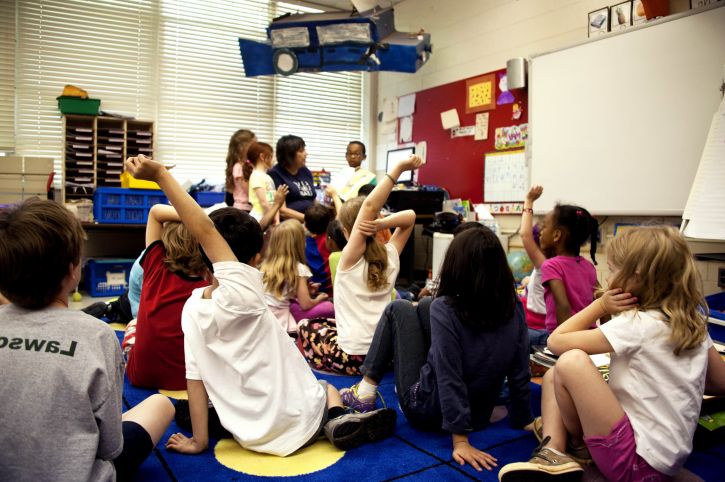An initiative by the city of Ghent to boost student performance by allowing pupils to use a language other than Dutch during lessons has sparked fierce opposition from local politicians.
Officials in Ghent launched a website aiming to provide guidance for teachers who wish to "give multilingualism a place in the classroom."
"Ghent schools are super diverse schools," a statement on the city's website reads. "Dutch is the language of instruction, but multilingualism can be used functionally and as an asset."
The website encourages teachers to allow students who speak a different language than Dutch at home to make use of it in the classroom, as doing so would "enhance the learning process" of students who are already multilingual.
"We have the rule that pupils are only allowed to speak Dutch in class, but for certain exercises or situations, an exception can be made," a Heleen Rijckaert, a Dutch-language teacher in Ghent, told to De Standaard.
Rijckaert said she already resorted to the practice, which, in making pupils "feel better in their own skin," ultimately made it easier for them to make progress in Dutch.
"I sometimes put together groups for each language: Turkish, Arabic, Pashtu or English," she said. "The idea is that they first discuss a subject in their language and then make a summary in Dutch.
'Criminal' for the pupils' future
The city's initiative is based on a study carried out in Ghent classrooms over a period of three years to understand ways to boost academic success for children belonging to ethnic minorities.
A statement on the website, which offers teachers different tool kits and resources to implement the practice, says that pupils who have a different home language than Dutch are less likely to move on to higher education than those in Dutch-speaking homes.
The study's results showed that the "targetted use of [a students'] home language in the classroom has a positive effect on children's performance."
But the city's initiative has sparked outrage among local politicians as well as education experts, who have said that the initiative "goes too far."
Elke Sleurs, a former Ghent city councillor with the nationalist Nieuw Vlaams Alliantie (N-VA) said that allowing students to use their home language in schools was "criminal for the future of [the] pupils."
"This concerns pupils in secondary education, children who have been [in school] for more than six years," the N-VA's Koen Daniëls, who studied educational sciences, said according to the outlet. "That a pupil translates something for a fellow classmate is fine, that is pragmatism. But this goes too far."
To bridge the learning gap and boost success for students who lag behind in Dutch, the nationalist party says that "language baths" or more lessons in Dutch, would be the only solution, in a measure which they are reportedly seeking to include in the regional coalition agreement.
"The N-VA is looking for contradictions that do not exist, we are not opposed to language baths," education alderwoman Elke Decruynaere said, adding that the initiative did not mean Dutch, which remained the language of instruction, would become less important.
Gabriela Galindo
The Brussels Times

